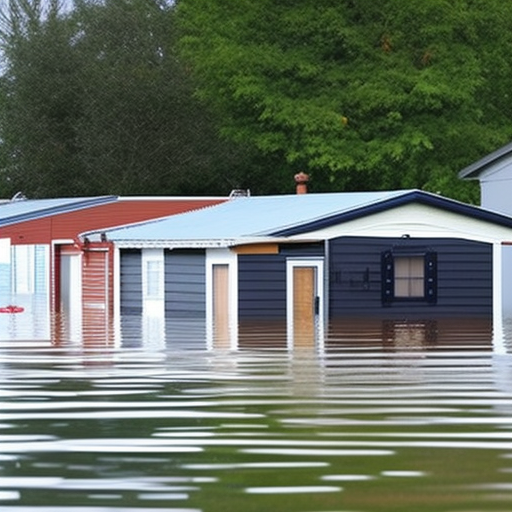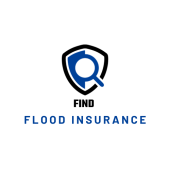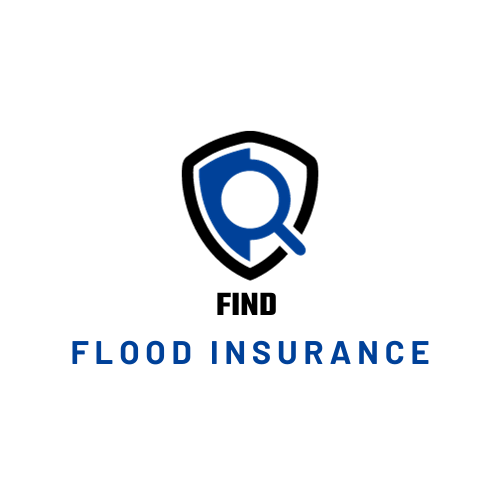
Mobile homes, just like traditional homes, are susceptible to the destructive forces of floods. Regardless of your location, whether near a body of water or in an area with low flood risk, it’s crucial to understand the importance of flood insurance for mobile homes. This coverage can offer you peace of mind in the event of unforeseen circumstances, safeguarding your investment and ensuring that you can recover from potential damages. Over the course of this article, we will delve into the reasons why flood insurance is a necessity for mobile homeowners, the coverage it provides, and how you can choose the best policy for your needs.
Importance of having flood insurance for mobile homes
Flood insurance for mobile homes is of paramount importance for a number of reasons. Firstly, even if your mobile home is located in an area with low flood risk, it doesn’t completely rule out the possibility of flooding. A significant downpour, a rapid melting of snow, or a nearby water main break can result in flooding, causing extensive damage to your mobile home.
Secondly, mobile homes are typically more vulnerable to flood damage due to their construction and the way they are typically sited. Flood water can easily invade a mobile home, damaging its structure, interior, and contents. Moreover, unlike traditional homes, mobile homes are more likely to be moved off their foundations by flood waters, leading to total loss.
Lastly, it’s crucial to note that standard homeowners insurance policies don’t cover flood damage. This means that without specific flood insurance for your mobile home, you’ll be left to shoulder the cost of repairs or replacement out of pocket. This can be a heavy financial burden to bear. Therefore, having flood insurance for your mobile home is a key aspect of protecting your investment and financial security.
Understanding Mobile Home Insurance
Typical coverage included in mobile home insurance
Typical coverage in mobile home insurance often encompasses several key areas:
- Physical structure coverage: This refers to the actual structure of your mobile or manufactured home. It provides coverage for repairs or replacement if your home is damaged or destroyed by a covered peril.
- Personal property coverage: This covers the items inside your home, such as furniture, electronics, and clothing, in case they are damaged, stolen, or destroyed by a covered peril.
- Liability protection: This offers coverage if someone gets hurt while on your property or if you unintentionally cause damage to another person’s property. It can help cover legal expenses and medical bills.
- Additional Living Expenses (ALE): If a covered peril makes your home uninhabitable, this can help cover the costs of living elsewhere while your mobile home is being repaired or replaced.
Remember, even though these coverages provide a broad safety net, standard mobile home insurance does not cover flood damage. This is why acquiring a separate flood insurance policy for your mobile home is critical.
Risks and Vulnerabilities of Mobile Homes to Floods
Why mobile homes are particularly vulnerable to flooding
Mobile homes are particularly vulnerable to flooding due to several reasons. Firstly, they are often located in flood-prone areas, especially if they are in mobile home parks. Secondly, they are usually less securely anchored than traditional houses, making them more susceptible to be carried away by floodwaters. Furthermore, their lower elevation and lighter construction material make them less resistant to water damage. These factors combined can result in significant damage or even complete destruction during a flood event. Hence, it is of utmost importance for mobile home owners to consider a separate flood insurance policy for comprehensive protection.
Real-life examples of flood damage in mobile homes
In August 2017, Hurricane Harvey made landfall in Texas, causing catastrophic flooding throughout the region. Among the most severely affected were mobile homes. In the city of Port Aransas, a community of mobile homes was devastated. The high floodwaters and powerful winds resulted in complete destruction, with homes unmoored, disintegrated, or extensively water-damaged, rendering them uninhabitable.
In another instance, the 2019 Midwest floods severely impacted mobile home communities across Nebraska, Iowa, and Missouri. Due to their lower elevation and lighter construction, many of these homes were submerged, with water levels reaching halfway up the sides of the homes in some cases. The resulting water damage caused extensive repairs and, in many cases, total replacements.
These real-life examples underscore the vulnerability of mobile homes to flood events and the crucial role of flood insurance in helping homeowners recover from such devastating incidents.
Financial implications of flood damage without insurance
Without flood insurance, the financial implications for mobile home owners can be devastating. Restoration costs for water-damaged homes can be astronomical, particularly when considering the replacement of furniture, appliances, and personal belongings. Moreover, the damage inflicted on the mobile home’s structure, flooring, and electrical system can be severe, often necessitating comprehensive repairs or even total replacement. The cost of such reparations can easily run into thousands of dollars, creating a financial burden that many homeowners struggle to meet. Therefore, without flood insurance, mobile home owners may find themselves unprepared and unequipped to handle the financial consequences of flood damage.
How to Choose the Right Flood Insurance for Your Mobile Home
Factors to consider when choosing flood insurance
When choosing flood insurance for your mobile home, there are several important factors to consider.
- Coverage limit: This is the maximum amount an insurance company would pay for a claim. The coverage limit should ideally align with the value of your mobile home and the cost to replace belongings within it.
- Deductible: This is the amount you would need to pay out-of-pocket before the insurance benefits kick in. Higher deductibles generally mean lower premiums, but ensure that it’s an amount you can comfortably afford in case of a flood event.
- Extent of Coverage: Understand what is and isn’t covered by the policy. Most flood insurance policies cover the building and its foundation, electrical and plumbing systems, central air and heating systems, and large appliances. However, it’s crucial to verify these details and possibly consider additional coverage for valuables not included in the standard policy.
- Exclusions: Ensure to go through the policy’s exclusion section. Some policies might not cover certain types of damage, such as mold or mildew damage that could have been avoided by the homeowner.
- Flood Risk: Consider the flood risk in your area. If your mobile home is situated in a high-risk flood zone, comprehensive coverage is advisable.
- Provider’s Reputation: Lastly, consider the reputation and financial stability of the insurance provider. Check their customer reviews and ratings to ensure that they have a history of processing claims fairly and promptly.
Careful consideration of these factors can assist homeowners in making informed decisions, ensuring they select the best possible flood insurance for their mobile homes.
Comparison of different flood insurance options for mobile homes
Here is a brief comparison of some popular flood insurance options for mobile homes:
- National Flood Insurance Program (NFIP): Managed by the Federal Emergency Management Agency (FEMA), the NFIP offers coverage for both the structure and contents of mobile homes. However, the maximum coverage is limited to $250,000 for the structure and $100,000 for contents.
- Private Flood Insurance: These are policies offered by private insurance companies. They often provide higher coverage limits compared to NFIP and could include additional benefits, such as living expenses if your home is uninhabitable after a flood.
It’s essential to get quotes from multiple providers and understand what each policy covers before making a decision. Each option has its pros and cons, and the best choice depends on your individual needs and circumstances.
Recap of the importance of flood insurance for mobile homes
The importance of acquiring flood insurance for mobile homes cannot be overstated. Given the potentially devastating financial implications of flood damage and the vulnerability of mobile homes to such disasters, securing robust flood insurance is a prudent move. Policies such as those offered by the National Flood Insurance Program (NFIP) and private insurance companies provide invaluable coverage to mitigate the financial impact of a flood event. From covering the structure and contents of your home to providing living expenses in some cases, these insurance options offer peace of mind. It’s crucial to carefully consider factors such as flood risk in your area, your financial capacity, the policy’s extent of coverage, the deductible amount, and the insurance provider’s reputation when selecting a plan. With careful consideration and thorough comparison of different options, homeowners can ensure they choose the best possible insurance solution for their mobile homes.
Take the proactive step today: review your current insurance coverage and evaluate its adequacy in the face of potential flood risks. If you own a mobile home and have not yet considered flood insurance, it’s time to give it serious thought. The peace of mind that comes with knowing you’re protected against financial loss due to flood damage is invaluable. Seek advice from an insurance professional, get multiple quotes, and make an informed decision. Don’t wait for a flood event to expose the gaps in your coverage – act now and secure your financial future.


